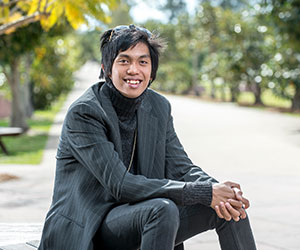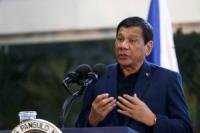
Josef Borja-Erece [via USQ]
Josef Borja-Erece, credited as the youngest solicitor in the Supreme Court of Queensland and youngest law graduate from the University of Southern Queensland (USQ), is a Filipino-Kiwi.
Erece, born to Filipino migrants in New Zealand, graduated with a law degree from USQ at the age of 18 years old after entering university at the age of 15.
After graduation, he joined the Supreme Court as the youngest practicing solicitor in Queensland.
Erece is also the founder of Starlight Legacies, a collaborative movement which provides a royalty-sharing platform to promote global unity amid diversity by “immortalizing and archiving as many souls as we can through recording respective though recording respective thoughts and stories.”
Erece is also a literary writer for World XCV and has published books.
The Fil-Kiwi’s entry in the USQ’s featured 50/25 describes Erece’s career pathing: “While he considers Law to be the social force which quintessentially binds us together and keeps the peace, Jozef is currently following an unexpected career path and precipitating positive change globally as the founder of Starlight Legacies – an interactive social phenomenon and collaborative movement which aims to promote global unity and respect, as well as the celebration of diversity in all forms.”
Erece recently started graduate studies at the Australian National University in Canberra which he says in his recent Facebook post is “signifying my official return to the public scene.” After completing his LLM he intends to pursue a PhD towards an academic career in areas of cross-constitutional law, jurisprudence, and international policy.
Erece maintains even while pursuing graduate studies he will keep working with World XCV.
|
|
The post Josef Borja-Erece, youngest solicitor in Queensland, Australia appeared first on Good News Pilipinas.

